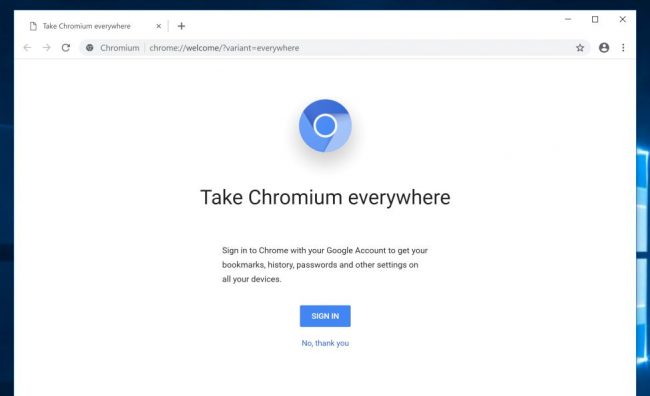
- #UNGOOGLED CHROMIUM VS IRIDUM INSTALL#
- #UNGOOGLED CHROMIUM VS IRIDUM UPDATE#
- #UNGOOGLED CHROMIUM VS IRIDUM UPGRADE#
- #UNGOOGLED CHROMIUM VS IRIDUM SOFTWARE#
With that simple change, anyone using a distribution-specific build of Chromium just became persona non grata. But the search giant is also using this opportunity to codify their belief that the only official Chromium builds are the ones that they provide themselves. The language used in the post makes it sound like Google is referring to browsers which are spun off of the Chromium codebase, and at least in part, they are. In fact, you might even assume it doesn’t apply to you. To the average Chromium user, this doesn’t sound like much of a problem. In response, any browser attempting to access features such as Chrome Sync with an unofficial API key would be prevented from doing so after March 15th.

Unfortunately, that may be changing soon.Ī post made earlier this month to the official Chromium Blog explained that an audit had determined “third-party Chromium based browsers” were using APIs that were intended only for Google’s internal use. As such, most distributions offer their own package for the browser and some even include it in the base install.

Since the project’s inception over a decade ago, users have been able to compile the BSD licensed code into a browser that’s almost the same as the closed-source Chrome. Seriously thanks so much mw / brent and the others for the detailed info and explanations and even instructions that is so awesome of you.Linux users are more likely than most to be familiar with Chromium, Google’s the free and open source web project that serves as the basis for their wildly popular Chrome. I had Solus 4.2 on a USB stashed away and it saved my PC so I'm here to stay. Solus was always my fallback option if Arch broke, which I kinda expected it to.
#UNGOOGLED CHROMIUM VS IRIDUM UPGRADE#
On arch I simply used "yay" command and that handled it all at once- if only there was such a command on Solus to upgrade everything but I'm still learning.
#UNGOOGLED CHROMIUM VS IRIDUM UPDATE#
I'll take the advice to stick with the trinity only (eopkg primarily & flatpak/snap) and update them once a week or so. Installed flatpak and installed ungoogled there and this version works fine. Apparently the way around it is to use the flatpak version.
#UNGOOGLED CHROMIUM VS IRIDUM SOFTWARE#
I should have probably titled this post "are there other package managers besides software manager available for solus" it would have saved lots of meandering on my end 😛įor some reason ungoogled from Snapstore gave me issues, something to do with no-sandbox flags causing bugs and opening new instances each time. Thank you for pointing me in the right direction (& apologies for the naivety 🙂) I'll stick with Software Center & Snap Store. But honestly finding out Snap Store has its own GUI to handle such things resolves my concerns.
#UNGOOGLED CHROMIUM VS IRIDUM INSTALL#
I exclusively used yay via terminal to install and update everything, in an effort to keep it stable.

I'm here from a broken Arch install after 2 months (6/7/21 - 8/9/21 RIP).

But I think I'll go with Ungoogled considering development seems much quieter on Libre's side, I can hardly find people talking about or using it. No autoupdates for either on Windows/Mac, for some reason. Honestly I'm probably the last person who needs such a fortressy browser like Librewolf or Ungoogled but I like the peace-of-mind they provide, and the superficial idea that it makes me feel like I'm getting the most out of my Linux installation. Ungoogled and Heroic (Epic) Launcher are the only apps I need that aren't in the main repos. I was under the impression the Snap/flatpak methods were just ways to do a quick local install of app packages, I assumed I would have to constantly be checking manually for updates myself.


 0 kommentar(er)
0 kommentar(er)
